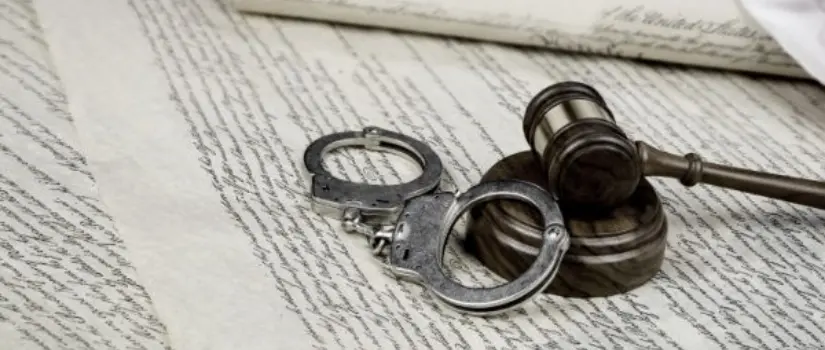Experienced Criminal Lawyers
News & Articles
Can I Be Tried Twice For The Same Crime In Canada?
Experienced Criminal Lawyers
News & Articles
Recent Posts
- How to Beat Drug Trafficking and Possession for the Purposes of Trafficking Charges in Canada
- Are There Mandatory Minimum Punishments in Drug Cases?
- Criminal Pardons & Record Suspensions
- Imprisonment during the Covid-19 Pandemic
- Criminal Diversion Programs
- What is an Absolute Discharge ?
- First Degree Murder Defences in Calgary
- What Are The Best Defences To Firearms Offences?
- What Are The Best Defences To Theft Charges?
Can I Be Tried Twice For The Same Crime In Canada?
Posted on March 22, 2021

A common question people have is whether Canada has a law against “Double Jeopardy”. Can you be tried again for the same crime in Canada? Double jeopardy is protected in both the Canadian Charter of Rights and Freedoms and the U.S. Constitution. Double jeopardy prevents the courts from trying someone for the same crime on both federal and state legislation. This helps the accused avoid double charges for one offence. It also prevents someone from being tried twice for the same offence.
There have been infrequent instances where the courts choose to exercise their constitutional right to prosecute for the same crime twice. Such as in the case of Paul Manafort in the U.S.
In this particular case, it was essential to overthrow double jeopardy and indict Manafort on both federal and state charges. They had to make sure Manafort could not be pardoned for his federal charges by President Trump and get off without punishment.

Does Canada Have Double Jeopardy?
The Canadian Charter of Rights and Freedoms has provisions that protect Canadians from double jeopardy. However, this only happens once you have been convicted or acquitted of a crime. In Canada, the prosecution is allowed to appeal an acquittal. If the acquittal is thrown out, the new trial is not considered double jeopardy because it annulled the first trial.
In general, it is not considered double jeopardy if it is a continuation of a trial or criminal proceeding, such as an appeals process, rather than pursuit of a new set of trials against the accused.
Res Judicata
The concept of double jeopardy arises from res judicata. Res judicata is a Latin term referring to a matter that has been decided between two parties. In the legal system, res judicata refers to a matter that has been settled by a competent court. It cannot be pursued further by those same parties.
A clear example of this would be when an individual is charged, tried and acquitted (with appeals all completed) of an offence in court. Afterwards, they are re-charged, re-tried and convicted of that same offence in an identical criminal proceeding.
Res Judicata Promoting Fairness For The Accused
Res judicata protects Canadians from being tried twice for an offence with the same facts. It protects citizens from being harassed by the criminal justice system. By protecting Canadians from double jeopardy, we avoid long-drawn-out criminal proceedings. Long proceedings cause the accused to be worn down. The prosecutor repeatedly presents the same facts and arguments until reaching the desired outcome.
With double jeopardy, the Crown has one chance to make its best possible case. Once the individual is convicted or acquitted, they may not re-try this case once any appeal process has been completed.
Res judicata is here to promote fairness for the accused and has an air of finality. It helps the justice system avoid inconsistent outcomes and protect the justice system’s fairness and integrity. This legal principle helps to conserve the court’s administrative resources. This allows individuals to be tried quickly by not clogging up the courts with the same old cases.

Canadian Constitutional Division Of Power
Similar to how double jeopardy works in the U.S., Canada’s constitutional division of power helps prevent the accused from being caught between federal and provincial powers. There are also systems to deal with problems that may occur when provincial legislation infringes on federal criminal power.
What Happens If They Find New Evidence?
In certain extreme cases, the prosecutor can re-open a proceeding to introduce new or further evidence. As discussed above, the Crown prosecutor should make their best possible case during the initial trial. But, in some instances, a judge may rule to re-open a case based on the new evidence being presented. This is rare as exceptional circumstances must be present. Re-opening a case must be done sparingly and with care.
Factors To Consider
Typically, a judge would consider three factors:
- Would the new submission of evidence significantly affect the case’s outcome? If the evidence currently was already discovered and not adduced originally by the prosecutor, re-opening the case is likely not going to be permitted.
- Would re-opening the case and admitting the new evidence lead to the possibly of the opposing party calling evidence in reply?
- Lastly, the court will consider the relevance and necessity of the proposed evidence. Also, the effect that re-opening will have on the trial’s expeditious conduct and the overall importance of the integrity of the trial process. They will also consider whether the other party will have prejudice if they allow a re-opening or if a miscarriage of justice will be perpetrated if it is not re-opened.
Judges typically are more hesitant to re-open cases and admit new evidence if it will essentially amount to a second trial.
If you are currently being charged with a crime, make sure to contact our experienced lawyers at Ross Lutz Barristers. Do not leave your freedom to chance. Let us handle your defence.